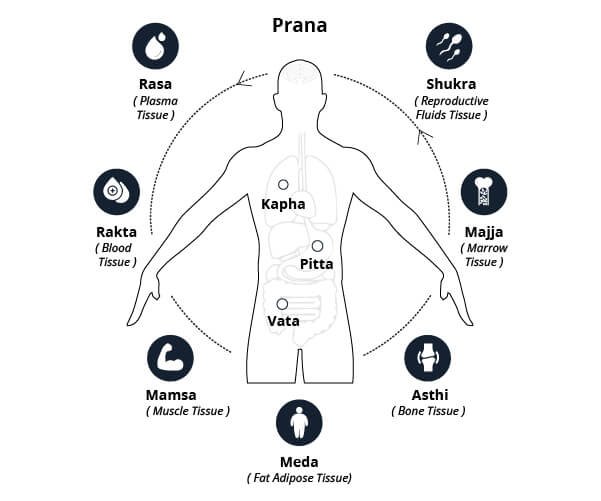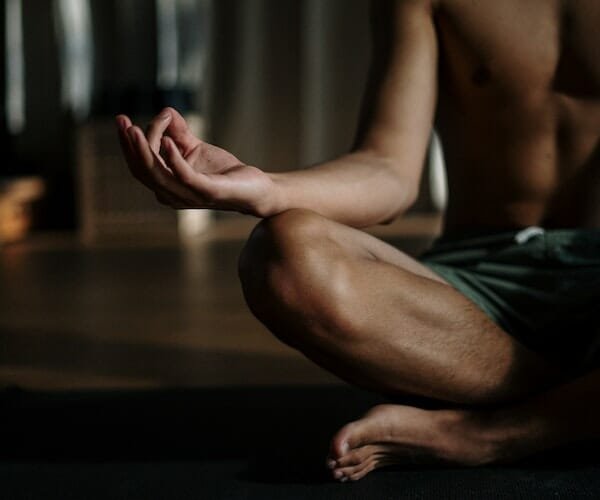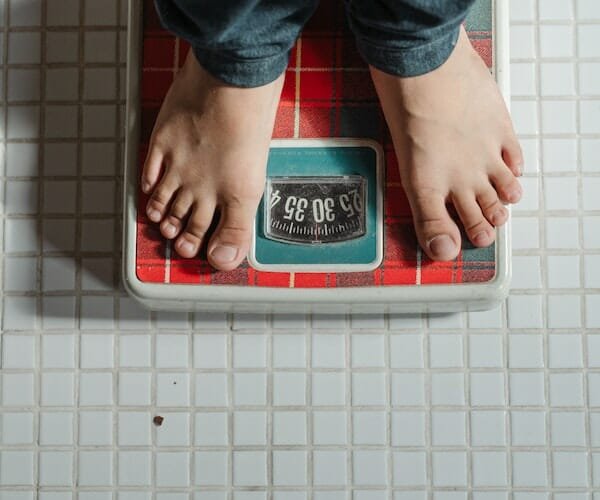Do you ever feel like your body and mind are not in sync with each other, but don’t know how to fix it? Introducing the age-old wisdom of Indian medicine, 3 Doshas that help you balance your body and mind naturally and effortlessly. But first, let?s understand Prakruti and Vikruti.
What is Prakruti??
Ayurveda describes a unique concept called “Prakruti” (constitution), which is genetically determined and divides human beings into several categories based on phenotypic characteristics such as appearance, temperament, and habits. The concept is said to be useful in predicting a person’s proneness to a specific disease, its prognosis, and therapy selection.?
The Prakruti is thought to be decided at the time of birth and is affected by the environment inside the womb as well as the mother’s dietary habits and lifestyle. This Prakruti exhibits the physical, physiological, and psychological characteristics of the dominant Dosha. A disruption in the balance of these doshas can lead to disease depending on the Prakruti of the individual, for example, a Pitta Prakruti person is more prone to gastric ulcers, hypertension, and skin diseases, a Vata Prakruti person to backache, joint aches, and cracking joints, and a Kapha Prakruti person to obesity, diabetes, and atherosclerosis.


Introduction to Doshas
Ayurveda attributes an individual’s constitutional characteristics to the strong influence of certain “doshas.” Vata, Pitta, and Kapha are the three main doshas.
Vata Dosha is in charge of movement (muscular, nervous energy, etc.). There are three major types of Prakruti based on the predominance of individual doshas, namely, Vata, Pitta, and Kapha.
Pitta Dosha is in charge of controlling body temperature and skin colour. Pitta governs the small intestine, stomach, liver, gallbladder, spleen, heart, blood, skin, grey matter, eyes, and vision. Pitta dosha controls the processes of thought and discrimination, mental decisions, and thoughtful analysis.
Kapha Dosha is the “anabolic,” synthetic dosha that is in charge of structure growth and maintenance. The pitta dosha is in charge of metabolism, which includes digestion in the gut as well as cellular or sub-cellular metabolism.
The Vatas ? Are you a Vata?
Vata is mostly made up of the elements of air and space. When the Vata dosha in a person is out of balance, they will experience a variety of symptoms such as fatigue, anxiety, restlessness, depression, and others. Vata is made up primarily of the elements air and space (also known as ether) and is commonly described as cold, light, dry, rough, flowing, and spacious. Autumn is associated with Vata because of its cool, crisp days. Those with the Vata dosha are typically thin, energetic, and creative.
Vata, according to Ayurveda, is in charge of our mental and physical adaptability. It is the energizing force of the body and mind, governing our nervous system, bones, and touch and hearing senses.


Herbs that Balance Vata Dosha
When it comes to balancing the doshas, ayurvedic herbs are valuable allies. Ayurveda has a long history of using herbs and herbal combinations to help Vata by bringing warmth, stability, and nourishment. The herbs and formulations listed below are particularly beneficial for Vata balance.
- Healthy Vata is an excellent choice for balancing Vata in the body and mind, including symptoms of excess Vata such as difficulty tolerating loud noises or dislike of wind and cold.
- A peaceful Mind promotes mental calm, ease, and grounded awareness.
- Joint Support promotes Vata balance in the joints, nerves, and muscles.
- Vata Massage Oil moisturizes and lubricates dry skin.
- Triphala powder, tablets, or liquid extract aids in proper elimination.
The Pittas: Are you a Pitta?
According to the classic ayurvedic text Charaka Samhita, when pitta is balanced within an individual, their blood will be healthy, and the acid secretions in their intestines and stomach will be optimal for digestion.
Pitta is responsible for mental digestion, sound judgment, and discernment. Pitta governs our ability to clearly perceive what the body senses (sees, hears, smells, etc.). In terms of transformation, pitta governs the body’s ability to combust, or digest, the materials required to provide warmth and colour. Pitta dosha governs the body’s ability to maintain warmth and absorb sunlight, as well as our ability to mentally digest our thoughts and emotions.


Herbs that Balance Pitta Dosha
Ayurveda has a long history of using herbs and herbal combinations to cool pitta heat and support body and mind balance. The herbs and formulations listed below are particularly effective at balancing pitta.
- Amalaki is one of the quintessential Ayurvedic herbs for supporting healthy pitta.
- Healthy Pitta is a blend of pitta-balancing herbs for the entire body.
- Healthy Skin, Blood Cleanse, and Soothing Skin Balm all help to maintain clear, calm skin.
- Joint Support and Joint Balm aid in the reduction of excess pitta in the joints.
- Pitta Digest promotes healthy digestion and a relaxing post-meal experience.
The Kaphas ? Are you a Kapha?
Kapha is primarily made up of earth and water elements. It’s slow, cool, sleek, smooth, delicate, thick, stable, gross, and cloudy. Kapha gives all things structure and robustness; it provides the cohesiveness required to maintain a specific form. Kapha also hydrates all cells and frameworks, lubricates joints, hydrates the skin, maintains immunity, and protects tissues. Kapha is frequently associated with water energy as well as love and compassion.
Kapha people have an excess of mucus and other milky secretions, and their voices are delicate and frequently obstructed by mucus. Kapha personalities are extremely elegant, possess a natural, erotic sensuality, and are generally very fertile.


Herbs that Balance Kapha Dosha
Ayurveda has a long history of using herbs and herbal combinations to warm and stimulate the slow, sluggish qualities of Kapha. The herbs and formulations listed below are particularly beneficial for balancing Kapha.
- Triphala powder, tablets, or liquid extract aid in the natural detoxification and elimination processes.
- Trim Support encourages healthy weight management.
- Mental Clarity promotes a sharp, decisive, adaptable, and acute mental state, as well as emotional composure.
- Kapha Massage Oil stimulates and warms the muscles and joints.
- Healthy Kapha is an excellent choice for balancing Kapha throughout the body and mind.
- Excess Kapha is expelled from the respiratory tract by Lung Formula, Lung Revive liquid extract, and Ayurveda’s many potent herbs for lung health.
Find Your Dosha
When you have a better understanding of your body, you can make better choices for your diet, exercise, and lifestyle. Learn about your doshas and become acquainted with your bodily requirements. Give Ayurveda a chance, and then consider how it can benefit you in various ways.
To reap the benefits of Ayurveda, one must first understand their doshas. But how does one discover? How do you determine which dosha type you are? Here’s a quiz to help you figure out the answers to all of these questions: Know Your Dosha Test
For any questions or concerns related to your doshas, contact us anytime at sukham.life.









